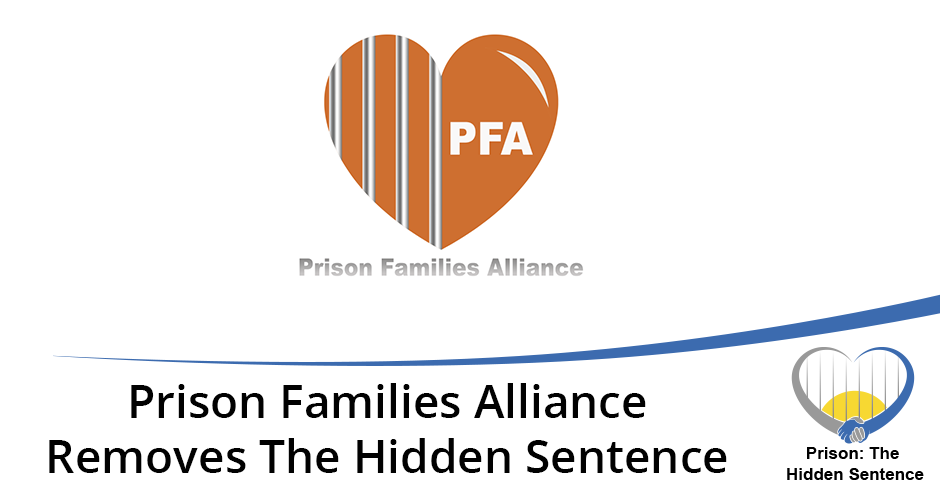
Incarceration is often a traumatic event that negatively impacts both the family as well as the person to be incarcerated. Who do you go to when a loved one is taken into the prison system? In this episode, Julia Lazareck discusses supporting the families and loved ones of prisoners with guests Alexis Schonfield, Barbara Allan, Danica Hubbard, Jolyn Armstrong and Neela, members of the Prison Families Alliance, Inc. The Alliance provides support, information and resources for those affected by incarceration. Tune in to learn more about this group of brave women who are making a difference.
—
Listen to the podcast here:
Prison Families Alliance Removes The Hidden Sentence
As we come to the end of season two of the show, we have a special episode for you. We have the facilitators of the Prison Families Alliance. This is a national organization that provides support to those on the outside that have a loved one in the prison system, as well as returning citizens, those coming home. It’s important to be able to support the whole prison family because the healthier the person is that’s coming out of prison, the more successful they’ll be on the outside. Even though the United States only has 5% of the world population, we have over 20% of the incarcerated population.
We have approximately seven million people sitting in prisons, in jails, on parole and probation. When somebody goes into the prison system, they don’t go alone. They go with their family and friends. I call it The Hidden Sentence because people outside are serving the sentence with their loved ones. The only difference is that they’re serving a sentence on the outside.
We have with us our wonderful facilitators. We have Barbara, Jolyn, Neela, Alexis and Danica. They’re going to share with us what they see in their groups, how they facilitate their groups and how much support, help, information and education they’re giving to people that often feel alone, isolated, shame, guilt, and all of these feelings that a lot of them don’t have anybody else to talk to. This is a safe place where people can come together, talk about their feelings and share information.
Prison: The Hidden Sentence does provide a lot of that information, and a few of the facilitators here do have books that they can share also. It’s important that we must support the children. There are almost 3 million children in the United States that have an incarcerated parent, and another 10 million that have or had a parent in the prison system. The majority of them are under ten years old. When their parent comes home, they might be an adult. They’ve lived their childhood having to visit the prison and have a relationship with their parents while they’re incarcerated.
Children that don’t have the support that has a parent or a family member that’s incarcerated are twice as likely to offend. The support group for kids is so important. Alexis is one of the facilitators of that group. Alexis, could you tell us a little bit about the children’s group, how it supports them with their learning, boundaries, empowerment and different things?
I am a facilitator but my son has also been one of the groups. A lot of times, kids don’t feel like they have a safe space to talk. I try to talk about different things around the year. For example, we had Thanksgiving, so we would talk about what they’re thankful for and what they want to have or see. Maybe their loved one that they can’t see because they’re incarcerated, with COVID and all that. As a mother, my son is letting people know what it was like when his grandmother was in prison. She’s on parole and we happen to live with her. It’s a unique perspective to hear what my son thinks and what I think.
It gives good feedback to the kids, but it also allows them to talk. It makes them feel more comfortable because you don’t talk about these things at school or with your friends next door. We have some curriculum for 2022, and it’s going to be monthly groups for an hour. The idea of the curriculum is to provide or reinforce skills that they might be learning in school, such as reflecting instead of reacting to situations. Sometimes, kids might have a tantrum or something in school, and it gets worse and worse because nobody takes the time to listen to them. This is a space for the kids to talk. Other than that, that’s it. It’s a safe space virtually for kids to understand and process what’s going on and not feel so alone.
It’s a wonderful group. The skills that you’re providing to them are so helpful because a lot of times, they don’t have anybody to talk to. It’s not only can they come to a group where there’s a trained facilitator. They also have other kids that they can talk to so they can learn from each other and see that they’re not alone and also how different kids handle different situations. That’s important.
The kid’s group has been so successful. We’ve heard from the parents and caregivers how it’s helped them. Talking about the caregivers, we also have a group for caregivers. There are a lot of times when a parent or family member is taken into the prison system, and the kids might not have somebody to take care of them. They might go to a grandmother, aunt, uncle, another family member or even go into foster care. The caregivers’ group is important. Neela, can you tell us a little bit about that group?
Being a mother who is a caregiver for my children who have a father that’s incarcerated, I know the struggles that I face, and I’m sure I’ll give space. You try to put the kids at the forefront. You don’t think about yourself, how you have to get by, what to do when you don’t have it together and how to make sure you can keep going. They take care of everybody else and forget about themselves. I wanted this group to help those caregivers whether it’s the mom, dad, aunt, uncle or grandma that is taking care of them.
There are all types of caregivers taking care of these children. I’ve seen in my groups that we all have the same struggles, even if we’re all in different shoes. I have grandmothers that are taking care of great-grandchildren. You have aunts and all these different people with different perspectives, but we all have that common denominator of, “Are we doing what we can to take care of them and take care of us?” It’s important to take care of yourself. It’s like Julia’s book, we have our own hidden sentence.
When someone you love has been arrested, tried, or taken from you, you have a feeling of powerlessness, loneliness and frustration. Share on XOn top of that, we have that along with having to take care of these children and sometimes both parents. We have all these things to juggle and we have no one to vent to who can understand. This group is there for people so you can speak to people who understand, can relate, give advice and perspectives that you don’t see or are not clear to you because stress blinds the eyes sometimes with so many different things.
I hope that this group can help everybody. Even if it helps one person, I feel like we’re doing everything and that’s all I want. I want what I wanted at the beginning of the time that I started this with my husband. The children’s group is a great caveat off of this as well. My kids are in that group and what they get out of it is as good as what I get out of the group that I facilitate.
Another thing that you go over that a lot of caregivers have questions about is, “How do you tell the children? How do they talk to the children? Should they take them to visit? When should they take them to visit? What are the phone calls like?” You cover a lot of those topics and it’s so helpful. Thank you so much, Neela.
We also have general support meetings. We started with general support meetings, and then we found that we needed these specialized meetings like the caregivers meetings, kids’ meetings and others that you’re going to hear about. We started with a general meeting that Barbara is going to tell us about.
When someone you love has been arrested, tried or taken from you, you have a feeling of powerlessness, loneliness and frustration. Prison Families Alliance is here to give the families a voice and help the families learn that not only are they not alone, but we all share the same feelings, concerns and fears. We also try to help our families navigate the system. We teach them how to advocate for themselves and their loved ones. We tell them what they need to get through this journey. It’s a very long, complicated journey and no one needs to take it by themselves.
We had a meeting and one of the moms said she blames herself. She feels that she allowed her son to commit whatever crime he did. We understand as few others can that we are not responsible for our grown children. They make the decisions they make and as a parent, you do the best you can. We don’t get up one morning and say, “I’m going to do something so that my child will commit a crime and go to prison.”

We feel the anger. Sometimes, we’re very angry. We’re not only angry at the system, but we’re angry at the person who put us into position. This is not how we hoped to live our lives. Through no fault of our own, someone has thrust us into a system that we don’t want to be a part of. We feel angry. We allow people to feel those feelings. We try to share that we all have the right to have feelings. We can vent and speak to one another without any fear of being judged. Whatever we say stays here.
Our families have a bond. When I call our prison families my extended family, I mean it. Many of the people that come to our meetings begin to feel the same way. We know that there will be no gossip or criticism. We learned that the carceral system would try to intimidate us. As an advocate for your loved one, we share how we work around that and how to talk to someone in the system so that we’re respectful. We asked them to share their knowledge. We tell people how to best get the information to access the information.
We stress getting a HIPAA form so that through the medical system, we can find out the conditions of our loved ones. Each person knows that they don’t even know they have. They’ll say something and someone else will say, “That’s right. I could do that. I did do that.” My son said the same thing, and it’s a vast feeling of not being alone. There are very few people other than those who have been affected who understand what we go through.
Through our understanding and love for each other, we help each other get through the rough times. We don’t talk and care about the crime. If someone feels that they need to share because it’s their need to get it off their chest, we’re certainly here to listen. There will be no criticism or judgment. We care about the person who’s in front of us and needs support at the moment. We do have formerly incarcerated people who come on to our calls at times, who let us know from their perspective what it’s like and the families can relate to that.
It’s also hope. We have people who have done a lot of time who are out and are productive tax-paying members of society. When that family sees that, it gives them hope. That’s one of the things that we try to instill in people. You hope but don’t expect. Teach them the different tools, not projecting. When someone is about to meet the parole board, we have fears and trepidation, “Will that person be released? What will happen if they are released? What will happen if they’re not?” All those feelings and emotions are the things that we share and talk about.
Barbara, that is so reflective of all of the meetings and the compassion that all facilitators have because all of the facilitators have been affected. They share their stories of what they’ve been through and share their information. The compassion and everything that you’re talking about is reflective of all of the meetings. Talking about re-entry, there is a family re-entry group that Jolyn facilitates. Jolyn, do you want to tell us about that group?
Through our understanding and love for each other, we help each other get through the rough times. We don't talk about the crime. We don't care about out. Share on XFamily re-entry is such an important subject. For that reason, it deserves its own group with a focus on all of the questions that families have. Even preparing for their loved ones to go into prison, what’s going to happen at the other end of that? What does it look like when someone comes home after prison? How do all of those little things work? If we can keep the family as strong as possible and those family bonds throughout this whole prison experience, the success of our returning citizens after they leave prison and come back home to us is way higher.
Their opportunities open up when your family is supported and have support in the community. The chance of re-offending is lowered when that person has a strong support system coming back home. Some of the things that we talk about too in that group are sometimes the unrealistic expectations we have of, “When my loved one comes home, it’s going to be like it was before.” We’re able to address and talk about some realistic expectations of what that might look like when your loved one who has been in prison for a long time comes home.
With the other general groups, we have some formerly incarcerated people that come into this group as well and give a realistic view of, “Here’s what I experienced when I came out and the struggles that I had.” It’s so beneficial. We also talk about the fact that preparing for re-entry starts on day one. There are things that the family can do to help their loved one who is incarcerated. There are things that the incarcerated individual can do as well while they’re in prison to prepare for the most success afterward.
I always encourage anyone at any point in their experience to come to this group, see what others are going through and learn the things we don’t know. Everyone is welcome to learn those lessons as well. It’s wonderful to see how people put their arms around and support each other. One other thing I wanted to mention about this group too is from time to time, we have parents in particular whose son or daughter is coming home from prison who feel immense guilt if they think coming back to their home is not the most appropriate thing. We feel guilty for feeling that way.
What does support look like if we believe that another home would be a good place for our loved ones to return to? We’re able to dive into what that support and family re-entry looks like if your family member is coming to your home, help alleviate some of that guilt and stress around that, and show how we can be supportive in so many ways other than providing a home. It’s a phenomenal group of people supporting each other.
There are some people who have come to the group while their loved one was in the prison system. They continue when their loved one comes home because it doesn’t stop the day they come home. It continues. The support that your group provides is helping a lot of families deal with the things that happen when somebody comes home because they’ve been institutionalized. It’s not the same person. It’s so important for the success of the family and for that person. Thank you so much. Talking about families, there’s another group led by Alexis along with her mother and sometimes her son. Alexis, can you tell us a little bit about that group?
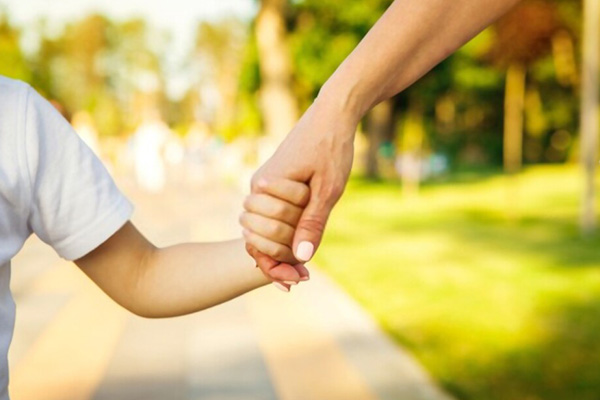
The whole way this organization has made this fully virtual has made it more accessible to people. You can meet loved ones all over the country. There are three generations here. My mom, who was incarcerated for 1,183 days, my 9-year-old son, who spent 5 months before her sentencing charging a GPS ankle monitor for grandma was normal and I, an adult daughter of someone who made a mistake. After she was released, she was supposed to be with me temporarily. It’s turned into three years of living together.
Before I continue, I want to provide a disclaimer about the group that my mom and I run. It can be very triggering. We keep it very real. Even my mom and I at times possibly trigger each other because we learned things that we never knew or how we fought. I fought for her, making sure she had adequate medical care and even in summers. The way my mom and I interact back and forth and how my son might put his two cents in makes the group normalized and puts your mind at ease on such a difficult topic.
Everyone has a chance to share their story. Some are hesitant sometimes but it’s important to my mom and me to make sure everyone in the group feels comfortable and safe. People, not just my mom and me, share other suggestions and offer different perspectives. We support everyone. Everyone’s experience here is very different, but we do have a lot in common at the same time. It’s been an amazing journey for me too personally and also professionally, as a licensed social worker.
Your group makes me laugh a lot. The interaction with you and your mom, I find it relieving. However, it is doused with reality. It can be triggering but I find that group very informative and real.
We try to use humor too because that’s how we are and what we do. Humor is also a way that we deal with tragedy. If you think about it, the whole prison journey is a tragedy. It’s something no one expects to go through. Some of the other groups I talked about were the kid’s group. We offer three generations. My son was three years old when she left. She was almost seven when she came back.
It’s interesting to allow my son to share his thoughts because he sees things so differently than I did. The way he remembers everything is different. It gives kids also a safe place. In this case, my son thinks he’s a facilitator. He can share perspectives for adults that they might never think about with their children. It’s great. We grow as facilitators and hopefully, other group members feel that they’re growing too.
Going through the bereavement process and any type of loss is not like microwaving a bowl of instant popcorn or noodles. It takes a lot of time. Share on XThe feedback that I get for all the groups is phenomenal. People are like, “I wish I found you at this point.” That’s another reason why we’re doing this because we want people to find us in the beginning. Talking about loss, there is another group that supports loss. Danica, could you tell us a little bit about that one?
First of all, I have to say that I have such respect and love for all the facilitators that volunteer their time on a weekly, bimonthly or everyday basis for Prison Families Alliance, and particularly for Julia, Barb and everyone involved for making this such a strong support network of participants and facilitators that can interact freely without a filter, come to the meetings and express themselves freely. That’s something that I’ve heard in the coping with loss group, which meets once a month on Fridays, “This is the place where I feel like I can open my heart and let my feelings go out uninhibited.” That’s important when you are trying to cope with loss.
The misconception with loss is it has to be connected solely with death. That’s one of the reasons I got involved in terms of being a facilitator for coping with loss. My father was incarcerated for seventeen years. He did, unfortunately, die in prison. We had a screening of the documentary, Prison Terminal, regarding the prison hospice system. We all viewed it together. We had the filmmakers there with us at the virtual meeting. We unpacked what it was like to be in a hospice prison program anywhere within the country. That changes the removal of your loved one in any type of loss, be it death, separation, loss of a job or income.
We’ve talked about the different layers of losses in our meetings each week. It’s been so raw and real. There are tears but there’s laughter too. We help, hold and lean on each other through these losses. A lot of the loss that we’ve talked about has been tied to the pandemic, and what types of losses that people have felt with their loved ones being incarcerated during the pandemic, having lockdowns or not having face-to-face visits, even having losses with non-communication for weeks or months at a time. We meet in this group to talk about what do those losses feel like and how we can navigate through those losses together to help one another.
Going through the bereavement process and any type of loss is not like microwaving a bowl of instant popcorn or noodles. It takes a lot of time. We’ve formed that intimate community with one another. We can share from multiple perspectives what our grief looks like on a weekly or monthly basis. Sometimes, the grief is with a small g and sometimes with a capital G. Our coping with loss support group helps one another throughout that process. We’re grateful to be part of the Prison Families Alliance.
I lost my brother in prison, and it doesn’t always have to be an actual death because a lot of times when somebody is taken to the prison system, you still go through that grieving process. That group is important in helping a lot of people. Thank you so much, Danica. I’m going to segue into one of the programs that we have. We have an intern program. Alexis, could you talk about that program and let people know?
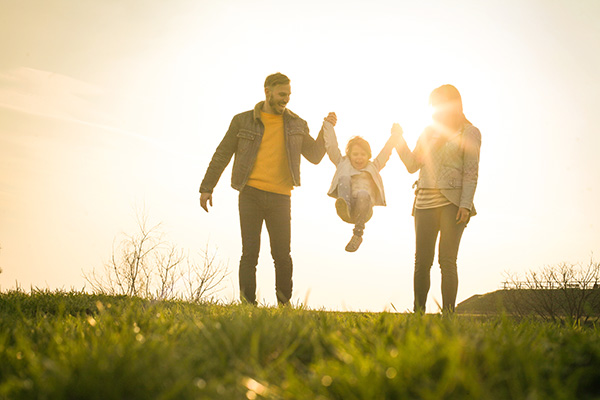
I am a licensed social worker in New York State. I became a licensed social worker a few months after my mom was sentenced. Throughout my experience with my internships, I was always dealing with my mom’s shopping lists, worrying about her health or trying to figure out where the package was because it wasn’t in the package room. The opportunity came for me to be a supervisor for some students. It’s been a cool experience so far. Not only did they learn from us as facilitators, but they’re also learning from the individuals who joined the groups. They’re able to apply it to social work.
For example, social work in general believes in three systems, 1) Micro, which is individual or family. 2) Meso, which is the community that you live in. 3) Macro, which is the justice system. The students get to see firsthand what it’s like to navigate all the integrated stuff. The incarcerated individual doesn’t only affect themselves. They affect whoever is on the outside of the system. Everyone is fighting and they’re not getting any answers. This is where social justice comes in and social workers can do a lot. We hope to continue to expand the program.
We’re getting more interns in the next semester. It’s becoming more popular. It’s not only for social workers but for students that are out there that have an interest in or want to learn about the criminal justice system, and how it affects the families and communities out there. It’s so prevalent. Thank you, Alexis.
There’s another topic that people don’t talk about. If your loved one is convicted of a sex crime, there’s so much stigma and shame associated with it. This group is growing. We have two facilitators and we’re going to start with Danica to tell us about that. Danica, could you also tell us about your book?
I do co-facilitate the sex offender support group. We’re a great team. There’s an impetus for writing a book, Sex Offender: My Father’s Secrets My Secret Shame, was based on my father, who was a convicted sex offender in the State of Wisconsin. He served seventeen years for sexual assault of a minor. He died in prison after serving those years. Within this group, we talk with families of sex offenders. The term sex offender can often be seen as a pejorative term. It’s derogatory or marginalized. This group takes away that taboo in terms of speaking in a safe place.
There was no doubt in terms of my family’s case that my father was a convicted sex offender. He was labeled as such, but that’s not the case for everyone who attends our group. In someone else’s case, they might not find or feel the label sex offender fits because it’s an injustice that was done or an ongoing investigation, still pending. My father was a convicted sex offender. We do talk about all the different stages along the way. We focus on the person, not the crime. We don’t get into the details of a pending case or even if someone is coming out of prison.
Shame lives in the dark, so shedding that light and providing these safe spaces for these families to come, show their faces and speak what they can't speak outside of this group is an amazing thing. Share on XWe are there to support this person who we love and our family loves. We try to help them as much as possible to integrate within the community to find a job, a place to live, and a way to make an income. These are all hurdles for sex offenders that we talk about within our group. We have convicted sex offenders that will speak in the group, which is phenomenal. A lot of people who are in the stages of perhaps their loved one is being tried or they have several per cases, that person can speak to their own experience, which helps others and gives a sense of relief in many ways because it can be the fear of the unknown.
We don’t know what will happen in prison because of this type of crime. It adds an extra layer of fear for my father and his safety, at least for me. This is a very specific group but a group where we respect one another and are open in our dialogue. It’s a safe group to talk and exchange dialogue in. It’s a very special group that I wish I had known of in 1999 when my family was going through this because it can be a very isolating process. This particular group is the direct opposite. We are a community that supports one another. I will hand it over to Jolyn. We facilitate this group together.
I love co-facilitating this group with Danica. It’s a group that’s growing. It is nice to have two of us there as well. We work so well together. I love that Danica brought up the term sex offender too because among families of sex offenders for those with a charge and outside of our group too, that term can be triggering and cause so much reaction. We do use it because it’s a legal term. You know what the group is about with that term.
I love that Colorado’s Sex Offender Management Board has decided to drop that term. They’ve decided to stop using that term for these men and women that have returned to society and have served their sentence that are living back among us as successful and productive citizens of society. This group is so important because families that come to this group face an extra layer of fear and shame. Shame lives in the dark. Shedding that light, providing these extra safe spaces for these families to come, show their faces and speak what they can’t speak outside of this group is an amazing thing.
One thing that I love to see is a lot of our attendees who join the first few times in our group, their cameras were turned off. They might speak or message. We love them and talk to them. We let them know that we’re here for them. Eventually, their camera comes on and they’re able to speak to us. It’s such a safe space for them to get the words out of their mouth for the first time outside of them and their loved one or 1 or 2 people in their inner circle. It’s such a healing space and I love it. I’m honored to be a part of that group.
I’m part of that group because my son served a sentence as a sex offender and has returned and lived life on the registry. We talk about that. A unique thing about this group too is we deal with so many things during the prison sentence and it continues. Unlike any other conviction or sentence, it continues after the prison experience in a unique way. My son has joined the group a couple of times. We’ve talked very openly about his experience, both during the prison experience and after. That’s helpful for attendees as well. I’m super honored to be part of that group in particular and co-facilitate with Danica.
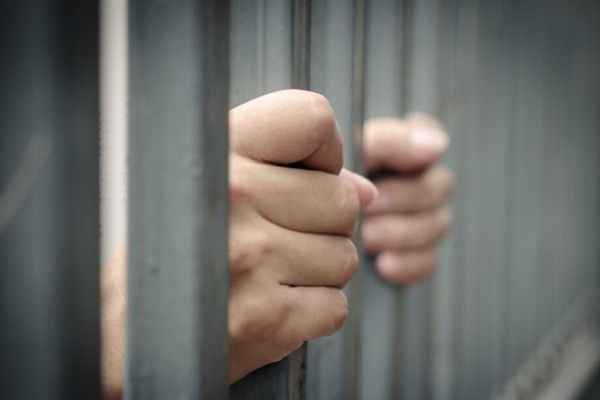
I appreciate both of you. I don’t want to diminish it. However, it’s so sensationalized on the news that when somebody is convicted of a sex crime, it could be something minor, and it opens people’s eyes to anything. Not everybody that is on the registry is a mass rapist or anything. People need to realize what it is to have this group.
Another thing that’s sensationalized we’ve found is the experience that sex offenders have in prison and outside of prison, and the fear of what’s going to happen because of this charge and all of that. We’re able to help navigate that as well. A person can do a very minor thing and wind up with a charge, a sentence and a label for the rest of their lives that is sensationalized and unfortunate. I hope we’re able to move past that as a society.
There’s also a group for families who have loved ones that are incarcerated with mental illness. That’s a big topic. All of these topics are things that people on the outside don’t have anybody to talk to. Prison Families Alliance provides that platform for people to be able to share. That’s why I thought it was so important bringing all the facilitators together.
I also facilitate and co-facilitate some of the meetings. I’ll jump in wherever I can because it’s a peer support meeting. When the pandemic hit, we went online and became national. We’re helping people all over the United States, people that didn’t have a voice and anybody to talk to. I hope that all of the facilitators that you’ve heard have shone some light on the support for people on the outside.
If you know somebody that’s been affected or if you’ve been affected, you can go to PrisonFamiliesAlliance.org to get more information and see the calendar of events. We also have added workshops. These are different than peer meetings because they’re facilitated by coaches and trained people on things like trauma. When somebody is taken into the prison system, it’s traumatic. You have to learn how to forgive yourself, especially a lot of the caregivers. It’s important. During the holidays, it can be difficult when you don’t have your loved one there.
There’s a workshop for a brief of belief during the holidays and an empowerment workshop. How do you stay strong? How do you empower yourself to live your life? You still need to move on. There are other workshops coming and other programs for the children. I’m thankful for everything that Prison Families Alliance is doing. I’m so glad that Barbara and I were able to come together to work with these wonderful facilitators, donating their time.
We’re putting together these workshops for people that need a little extra help. For the programs that are coming in 2022, we’ll be putting them on the website, PrisonFamiliesAlliance.org. I want to thank you all. If anybody has any questions, please reach out to us. I’m signing off for season two. Season three will be out soon. Thank you so much.
Important Links:
About Julia Lazareck
 Julia Lazareck is the founder of Prison: The Hidden Sentence, Inc. and co-founder and president of Prison Families Alliance, Inc. She is an advocate for change for family members who have loved ones in the criminal justice system. Through her podcast, publications and presentation, she provides information and support to the prison family. Her goal is to eradicate the stigma associated with having a loved one in the prison system to create a more compassionate world.
Julia Lazareck is the founder of Prison: The Hidden Sentence, Inc. and co-founder and president of Prison Families Alliance, Inc. She is an advocate for change for family members who have loved ones in the criminal justice system. Through her podcast, publications and presentation, she provides information and support to the prison family. Her goal is to eradicate the stigma associated with having a loved one in the prison system to create a more compassionate world.
About Alexis Schonfield
Alexis Schonfield is one of the facilitators of the Prison Families Alliance, Inc., focusing mainly on children’s support groups. She strongly advocates seeking justice for wrongly imprisoned individuals after her own mother was falsely accused of and jailed for murder.
About Barbara Allan
Barbara Allan was the Founder and Director of Prison Families Anonymous and is co-founder and advisor to Prison Families Alliance. These organization offers support and information to families and loved ones involved in the criminal or juvenile justice system.
About Danica Hubbard
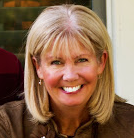 Danica Hubbard is an English Professor at College of DuPage, a community college in Illinois. She has taught Rhetoric and Composition, Creative Writing, Professional Writing and Developmental English for over 25 years. Danica is a Prison Families Alliance Board Member, facilitates Peer Support Meetings, “Coping with Loss” and co-facilitates “Support for Families of Sex Offenders.” She has collaborated with the Humane Prison Hospice Project https://humaneprisonhospiceproject.org/ and a variety of Criminal Justice university programs across the country. Her experience as the daughter of a convicted sex offender who died in prison provides valuable insight that she shares with meeting attendees. Her book, Sex Offender: My Father’s Secrets, My Secret Shame will be available for purchase on Amazon in the new year, 2022.
Danica Hubbard is an English Professor at College of DuPage, a community college in Illinois. She has taught Rhetoric and Composition, Creative Writing, Professional Writing and Developmental English for over 25 years. Danica is a Prison Families Alliance Board Member, facilitates Peer Support Meetings, “Coping with Loss” and co-facilitates “Support for Families of Sex Offenders.” She has collaborated with the Humane Prison Hospice Project https://humaneprisonhospiceproject.org/ and a variety of Criminal Justice university programs across the country. Her experience as the daughter of a convicted sex offender who died in prison provides valuable insight that she shares with meeting attendees. Her book, Sex Offender: My Father’s Secrets, My Secret Shame will be available for purchase on Amazon in the new year, 2022.
About Jolyn Armstrong
 Jolyn Armstrong is the founder of The FOTA Project (Families Of The Accused). When her son was arrested, she discovered that the few support resources for the traumatized families of people serving prison sentences were difficult to find. That’s why she launched The FOTA Project with her husband, Jim. FOTA’s mission is to provide emotional counseling, support, and guidance for the families of people who have been accused of a crime or who are incarcerated. Jolyn is a Prison Families Alliance facilitator of the Family Re-Entry and co-facilitator of the Families of Sex Offender peer support meetings.
Jolyn Armstrong is the founder of The FOTA Project (Families Of The Accused). When her son was arrested, she discovered that the few support resources for the traumatized families of people serving prison sentences were difficult to find. That’s why she launched The FOTA Project with her husband, Jim. FOTA’s mission is to provide emotional counseling, support, and guidance for the families of people who have been accused of a crime or who are incarcerated. Jolyn is a Prison Families Alliance facilitator of the Family Re-Entry and co-facilitator of the Families of Sex Offender peer support meetings.
Love the show? Subscribe, rate, review, and share!
Join the Prison: The Hidden Sentence Community today:


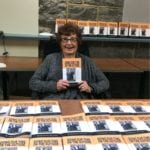
Jeff B. says
It has been said, to a mother and father, seeing your son or daughter go to prison for life is worse then having them die.
Jailaid says
It is really so sad for the family of the incarcerated ones. They also must live healthy as you say as they are suffering the “hidden sentence”. Just keep your trust in the Lord, Jesus and he will never leave us. You just don’t know how powerful your prayer is.
Jailaid says
It is really so sad for the family of the incarcerated ones. They also must live healthy as you say as they are suffering the “hidden sentence”. Just keep your trust in the Lord, Jesus and he will never leave us. You just don’t know how powerful your prayer is. Thank you for sharing.
Jailaid says
So inspiring. It is best for families with incarcerated loved ones feel that their loved ones are being waited. So proud of you guys,
SecurTel says
I agree! All people deserve love and second chances.
Globaltel says
That is all the incarcerated people need, SUPPORT. They need to feel they are loved and cared in the community so they feel good and not feared to be offended.
GlobalTel says
This is a great advocacy! Health is wealth, and prisoners matter too.
john.hawkins says
Thank you for your comments. What is your organization doing to keep the prison family connected?